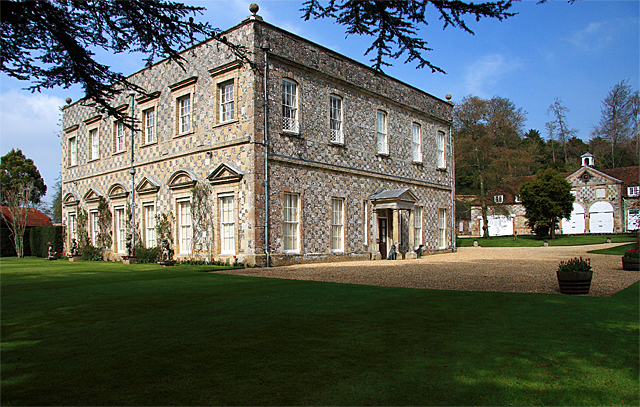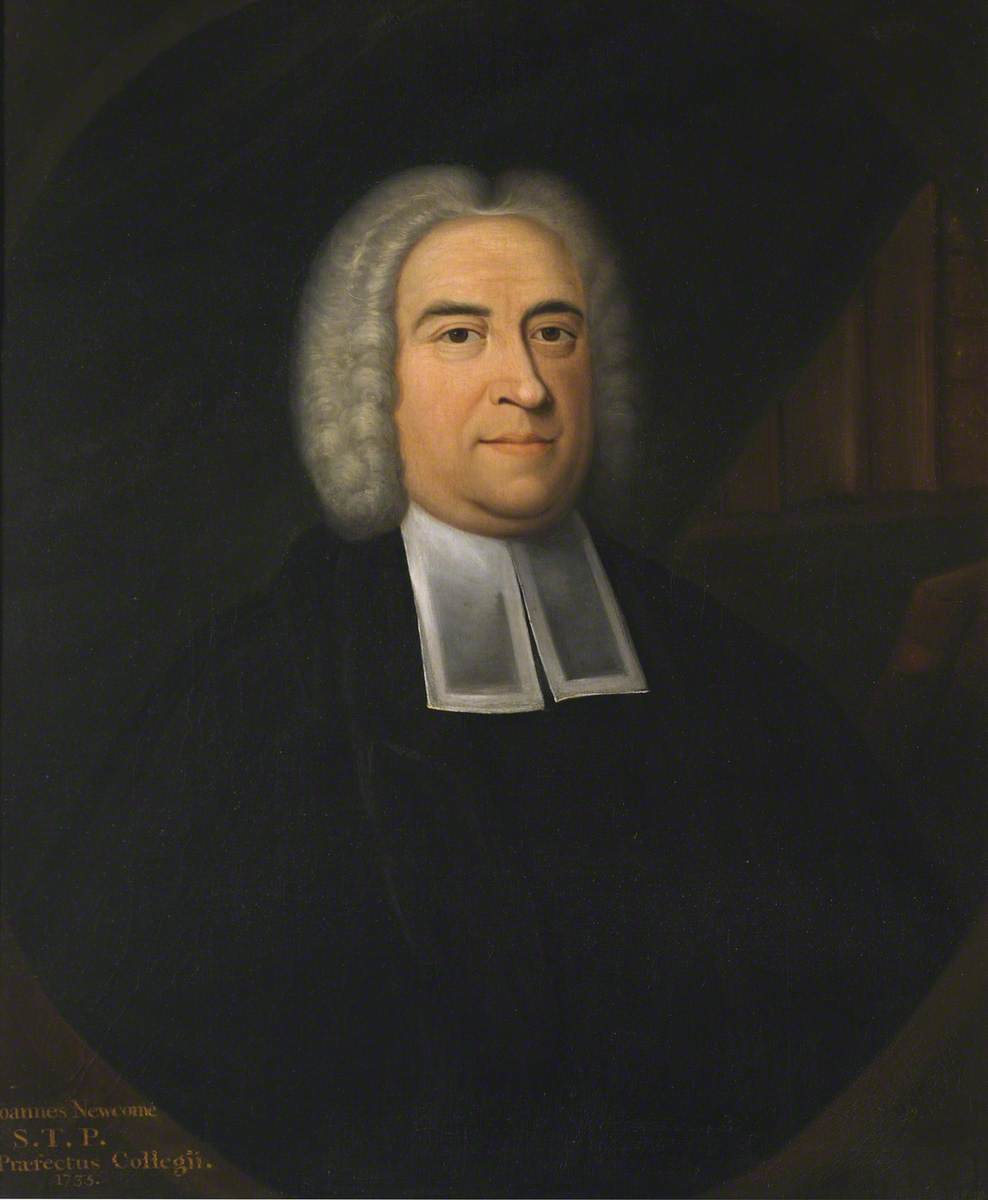|
Susanna Newcome
Susanna Newcome (; 1685–1763) was an English philosopher, theologian, and Christian apologist. She was born in the village of Durnford, Wiltshire, where her father was the vicar. She spent most of her adult life in Cambridge with her husband John Newcome, a professor and university administrator at St John's College, Cambridge. Her most notable work is ''An Enquiry into the Evidence of the Christian Religion'', first published in 1728. In the ''Enquiry'', she offers a Cosmological argument for the existence of God, in particular in defence of the Christian religion. Her life and significance to Christian apologetics has been explored in a biography, ''No Apologies'' (2020), by Sarah R. Enterline. Her philosophical work can arguably be seen as an early example of Utilitarianism In ethical philosophy, utilitarianism is a family of normative ethical theories that prescribe actions that maximize happiness and well-being for all affected individuals. Although different varie ... [...More Info...] [...Related Items...] OR: [Wikipedia] [Google] [Baidu] |
Durnford, Wiltshire
Durnford is a civil parish in Wiltshire, England, between Salisbury and Amesbury. It lies in the Woodford Valley and is bounded to the west by the Salisbury Avon and to the east by the A345 Salisbury-Amesbury road. The parish church and Little Durnford Manor are Grade I listed. The main settlement is Great Durnford, southwest of Amesbury. To the south, on the bank of the Avon, are the small settlements of Netton, Salterton and Little Durnford. History Evidence of prehistoric activity in the area includes two bowl barrows (Neolithic or Bronze Age) on high ground south of Great Durnford village, and Ogbury camp (Bronze Age or Iron Age), a hilltop enclosure on the summit of a ridge close to the village. Durnford is within the Stonehenge, Avebury and Associated Sites World Heritage Site, and Great Durnford lies some southeast of the Stonehenge monument. The Domesday Book of 1086 recorded 71 households at Durnford and a small settlement at Netton. The ancient parish of Durnford ... [...More Info...] [...Related Items...] OR: [Wikipedia] [Google] [Baidu] |
Cambridge
Cambridge ( ) is a university city and the county town in Cambridgeshire, England. It is located on the River Cam approximately north of London. As of the 2021 United Kingdom census, the population of Cambridge was 145,700. Cambridge became an important trading centre during the Roman and Viking ages, and there is archaeological evidence of settlement in the area as early as the Bronze Age. The first town charters were granted in the 12th century, although modern city status was not officially conferred until 1951. The city is most famous as the home of the University of Cambridge, which was founded in 1209 and consistently ranks among the best universities in the world. The buildings of the university include King's College Chapel, Cavendish Laboratory, and the Cambridge University Library, one of the largest legal deposit libraries in the world. The city's skyline is dominated by several college buildings, along with the spire of the Our Lady and the English Martyrs ... [...More Info...] [...Related Items...] OR: [Wikipedia] [Google] [Baidu] |
John Newcome (academic)
John Newcome, D.D. (10 September 1684 – 10 January 1765) was an eighteenth-century academic and priest, most notably Master of St John's College, Cambridge from 1735, and Dean of Rochester from 1744, holding both positions until his death. He was born in Grantham and died in Cambridge. Newcome's wife, Susanna Newcome Susanna Newcome (; 1685–1763) was an English philosopher, theologian, and Christian apologist. She was born in the village of Durnford, Wiltshire, where her father was the vicar. She spent most of her adult life in Cambridge with her husband J ..., was an English philosopher and theologian. References 1765 deaths 18th-century scholars Masters of St John's College, Cambridge Deans of Rochester People from Grantham Lady Margaret's Professors of Divinity {{England-academic-administrator-stub ... [...More Info...] [...Related Items...] OR: [Wikipedia] [Google] [Baidu] |
St John's College, Cambridge
St John's College is a Colleges of the University of Cambridge, constituent college of the University of Cambridge founded by the House of Tudor, Tudor matriarch Lady Margaret Beaufort. In constitutional terms, the college is a charitable corporation established by a charter dated 9 April 1511. The full, formal name of the college is the College of St John the Evangelist in the University of Cambridge. The aims of the college, as specified by its statutes, are the promotion of education, religion, learning and research. It is one of the larger Oxbridge colleges in terms of student numbers. For 2022, St John's was ranked 6th of 29 colleges in the Tompkins Table (the annual league table of Cambridge colleges) with over 35 per cent of its students earning British undergraduate degree classification#Degree classification, first-class honours. College alumni include the winners of twelve Nobel Prizes, seven prime ministers and twelve archbishops of various countries, at least two pri ... [...More Info...] [...Related Items...] OR: [Wikipedia] [Google] [Baidu] |
Cosmological Argument
A cosmological argument, in natural theology, is an argument which claims that the existence of God can be inferred from facts concerning causation, explanation, change, motion, contingency, dependency, or finitude with respect to the universe or some totality of objects. A cosmological argument can also sometimes be referred to as an argument from universal causation, an argument from first cause, the causal argument, or prime mover argument. Whichever term is employed, there are two basic variants of the argument, each with subtle yet important distinctions: ''in esse'' (essentiality), and ''in fieri'' (becoming). The basic premises of all of these arguments involve the concept of causation. The conclusion of these arguments is that there exists a first cause (for whichever group of things it is being argued has a cause), subsequently deemed to be God. The history of this argument goes back to Aristotle or earlier, was developed in Neoplatonism and early Christianity and late ... [...More Info...] [...Related Items...] OR: [Wikipedia] [Google] [Baidu] |
Christian Religion
Christianity is an Abrahamic monotheistic religion based on the life and teachings of Jesus of Nazareth. It is the world's largest and most widespread religion with roughly 2.38 billion followers representing one-third of the global population. Its adherents, known as Christians, are estimated to make up a majority of the population in 157 countries and territories, and believe that Jesus is the Son of God, whose coming as the messiah was prophesied in the Hebrew Bible (called the Old Testament in Christianity) and chronicled in the New Testament. Christianity began as a Second Temple Judaic sect in the 1st century Hellenistic Judaism in the Roman province of Judea. Jesus' apostles and their followers spread around the Levant, Europe, Anatolia, Mesopotamia, the South Caucasus, Ancient Carthage, Egypt, and Ethiopia, despite significant initial persecution. It soon attracted gentile God-fearers, which led to a departure from Jewish customs, and, after the Fall o ... [...More Info...] [...Related Items...] OR: [Wikipedia] [Google] [Baidu] |
Utilitarianism
In ethical philosophy, utilitarianism is a family of normative ethical theories that prescribe actions that maximize happiness and well-being for all affected individuals. Although different varieties of utilitarianism admit different characterizations, the basic idea behind all of them is, in some sense, to maximize utility, which is often defined in terms of well-being or related concepts. For instance, Jeremy Bentham, the founder of utilitarianism, described ''utility'' as: That property in any object, whereby it tends to produce benefit, advantage, pleasure, good, or happiness ... rto prevent the happening of mischief, pain, evil, or unhappiness to the party whose interest is considered. Utilitarianism is a version of consequentialism, which states that the consequences of any action are the only standard of right and wrong. Unlike other forms of consequentialism, such as egoism and altruism, utilitarianism considers the interests of all sentient beings equally. Pr ... [...More Info...] [...Related Items...] OR: [Wikipedia] [Google] [Baidu] |
English Christian Theologians
English usually refers to: * English language * English people English may also refer to: Peoples, culture, and language * ''English'', an adjective for something of, from, or related to England ** English national identity, an identity and common culture ** English language in England, a variant of the English language spoken in England * English languages (other) * English studies, the study of English language and literature * ''English'', an Amish term for non-Amish, regardless of ethnicity Individuals * English (surname), a list of notable people with the surname ''English'' * People with the given name ** English McConnell (1882–1928), Irish footballer ** English Fisher (1928–2011), American boxing coach ** English Gardner (b. 1992), American track and field sprinter Places United States * English, Indiana, a town * English, Kentucky, an unincorporated community * English, Brazoria County, Texas, an unincorporated community * Engli ... [...More Info...] [...Related Items...] OR: [Wikipedia] [Google] [Baidu] |
18th-century English Theologians
The 18th century lasted from January 1, 1701 ( MDCCI) to December 31, 1800 ( MDCCC). During the 18th century, elements of Enlightenment thinking culminated in the American, French, and Haitian Revolutions. During the century, slave trading and human trafficking expanded across the shores of the Atlantic, while declining in Russia, China, and Korea. Revolutions began to challenge the legitimacy of monarchical and aristocratic power structures, including the structures and beliefs that supported slavery. The Industrial Revolution began during mid-century, leading to radical changes in human society and the environment. Western historians have occasionally defined the 18th century otherwise for the purposes of their work. For example, the "short" 18th century may be defined as 1715–1789, denoting the period of time between the death of Louis XIV of France and the start of the French Revolution, with an emphasis on directly interconnected events. To historians who expand the ... [...More Info...] [...Related Items...] OR: [Wikipedia] [Google] [Baidu] |
1685 Births
Events January–March * January 6 – American-born British citizen Elihu Yale, for whom Yale University in the U.S. is named, completes his term as the first leader of the Madras Presidency in India, administering the colony on behalf of the East India Company, and is succeeded by William Gyfford. * January 8 – Almost 200 people are arrested in Coventry by English authorities for gathering to hear readings of the sermons of the non-conformist Protestant minister Obadiah Grew * February 4 – A treaty is signed between Brandenburg-Prussia and the indigenous chiefs at Takoradi in what is now Ghana to permit the German colonists to build a third fort on the Brandenburger Gold Coast. * February 6 – Catholic James Stuart, Duke of York, becomes King James II of England and Ireland, and King James VII of Scotland, in succession to his brother Charles II (1660–1685), King of England, Scotland, and Ireland since 1660. James II and VII reigns ... [...More Info...] [...Related Items...] OR: [Wikipedia] [Google] [Baidu] |
1763 Deaths
Events January–March * January 27 – The seat of colonial administration in the Viceroyalty of Brazil is moved from Salvador to Rio de Janeiro. * February 1 – The Royal Colony of North Carolina officially creates Mecklenburg County from the western portion of Anson County. The county is named for Queen Charlotte of Mecklenburg-Strelitz, who married George III of the United Kingdom in 1761. * February 10 – Seven Years' War – French and Indian War: The Treaty of Paris ends the war, and France cedes Canada (New France) to Great Britain. * February 15 – The Treaty of Hubertusburg puts an end to the Seven Years' War between Prussia and Austria, and their allies France and Russia. * February 23 – The Berbice Slave Uprising starts in the former Dutch colony of Berbice. * March 1 – Charles Townshend becomes President of the Board of Trade in the British government. April–June * April 6 – The Théâtre du Palais-Roya ... [...More Info...] [...Related Items...] OR: [Wikipedia] [Google] [Baidu] |





